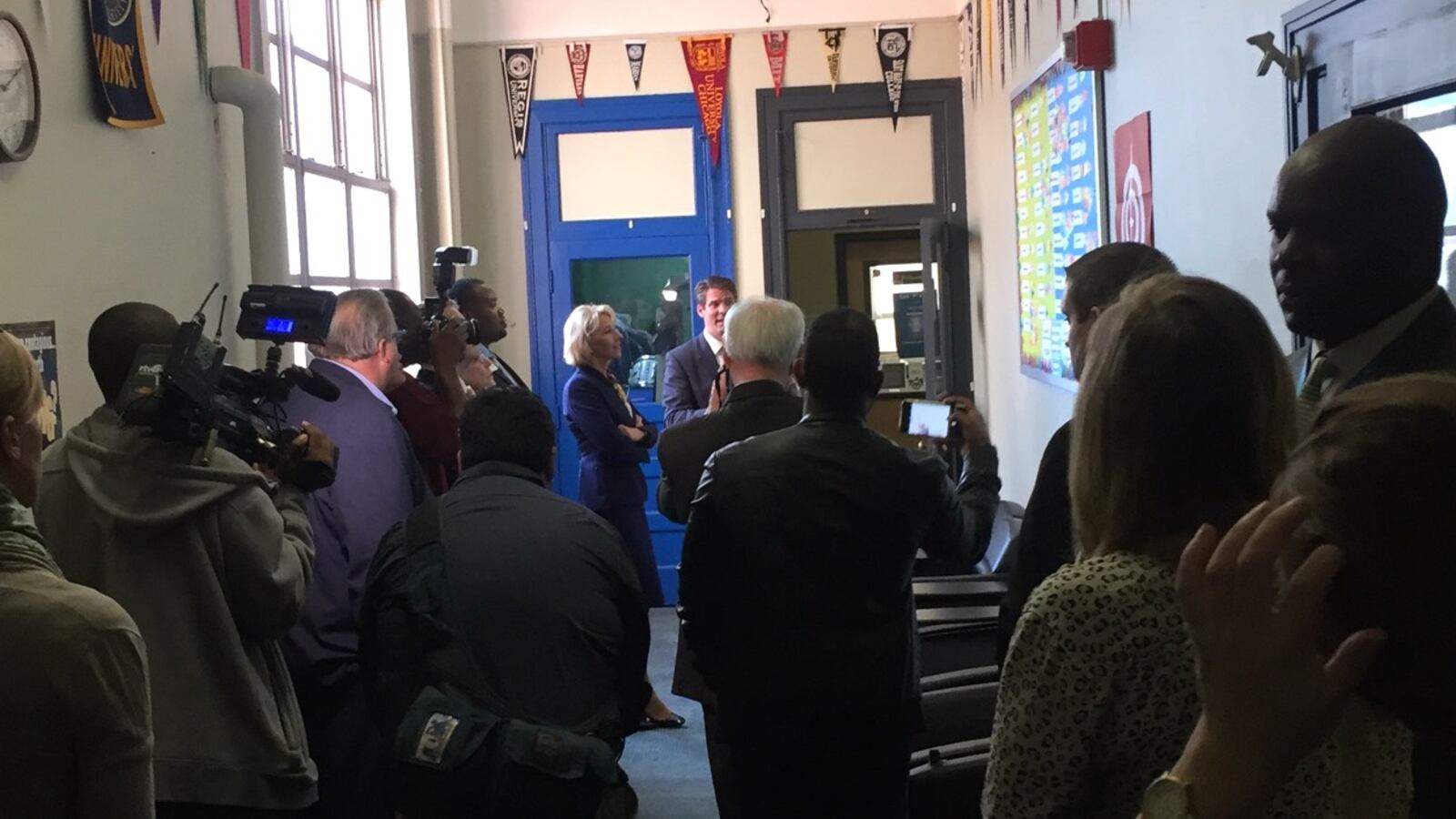Betsy DeVos drew incredulous reactions this week when she said she would let states decide on the rules for voucher programs vying for federal money — including whether schools that discriminate against LGBT students could participate.
But the education secretary’s position isn’t out of the mainstream among voucher supporters, or out of step with how private school choice programs work across the country.
For instance, Robert Enlow of the Indianapolis-based EdChoice, a group that advocates for vouchers, emphasized that his group does not support discrimination but declined to take a position on whether private schools that receive public funds should be prohibited from discriminating based on sexual orientation.
“As an organization we are working [toward] our position” on that issue, he told Chalkbeat, the day before DeVos’s comments to Congress. “It is something we are concerned about and that we need to confront head on, but we don’t have a position yet.”
That stance is also reflected in model private school choice legislation from the American Federation for Children, the advocacy group that DeVos used to lead. It says only that schools should comply with federal discrimination law, and does not include rules regarding sexual orientation. A spokesperson for the group did not immediately respond to a request for comment.
Voucher programs give families public funds to pay private school tuition. The vast majority of private schools in the country are religious; in Indiana there are just seven non-religious private schools participating in the state’s voucher program, compared to nearly 300 Christian schools.
Federal law bans discrimination based on “race, color, or creed” in private schools that receive tax exemptions but is silent on the issue of sexual orientation. According to a 2016 study, no school voucher program in the country includes such protections, meaning that students or families who elect to participate may have no legal recourse if they face discrimination based on sexual orientation.
And a number of schools that are part of publicly funded private school choice programs in Indiana, North Carolina, and Georgia — initiatives backed by national school choice groups — include explicitly anti-gay language.
Blackhawk Christian School in Fort Wayne, Indiana, says in its handbook that it may refuse admission or expel a student for “practicing homosexual lifestyle or alternative gender identity, promoting such practices, or otherwise having the inability to support the moral principles of the school.”
Another Indiana school highlights differences between public schools and private Christian schools on its website, including that while teachers in public schools “may be straight or gay,” those in private schools are “committed believers seeking to model Christ before their students.” Both schools participate in Indiana’s school voucher program.
Choice programs differ. Some, like Washington, D.C.’s federally backed initiative, prohibit discrimination based on religion or gender, while other don’t. Attempts to ban discrimination based on sexual orientation in D.C.’s program have been voted down by Republicans in Congress.
Public schools are not free from discrimination, according to survey data compiled by GLSEN, a group that pushes for fair treatment of LGBT students in school. According to the survey, LGBT students reported experiencing more discrimination in private religious schools as compared to public schools — but were less likely to experience verbal or physical harassment in private schools.
Supporters of school choice worry that banning discrimination would stop some private schools from participating in voucher programs and prevent them from practicing their religion.
“If you support private school choice, then you have to be comfortable with allowing private schools to remain private,” Michael Petrilli of the conservative Fordham Institute said earlier this year. “One part of that is allowing them to be religious, to have a set of values they believe in, and to have an admissions process to make sure kids are a good fit for their program.”
Enlow pointed to research compiled by EdChoice that private schools instill a greater sense of tolerance and civic virtue than public schools.
Enlow suggested that questions of discrimination can be addressed locally. “We believe that families and schools working together can solve this,” he said.


